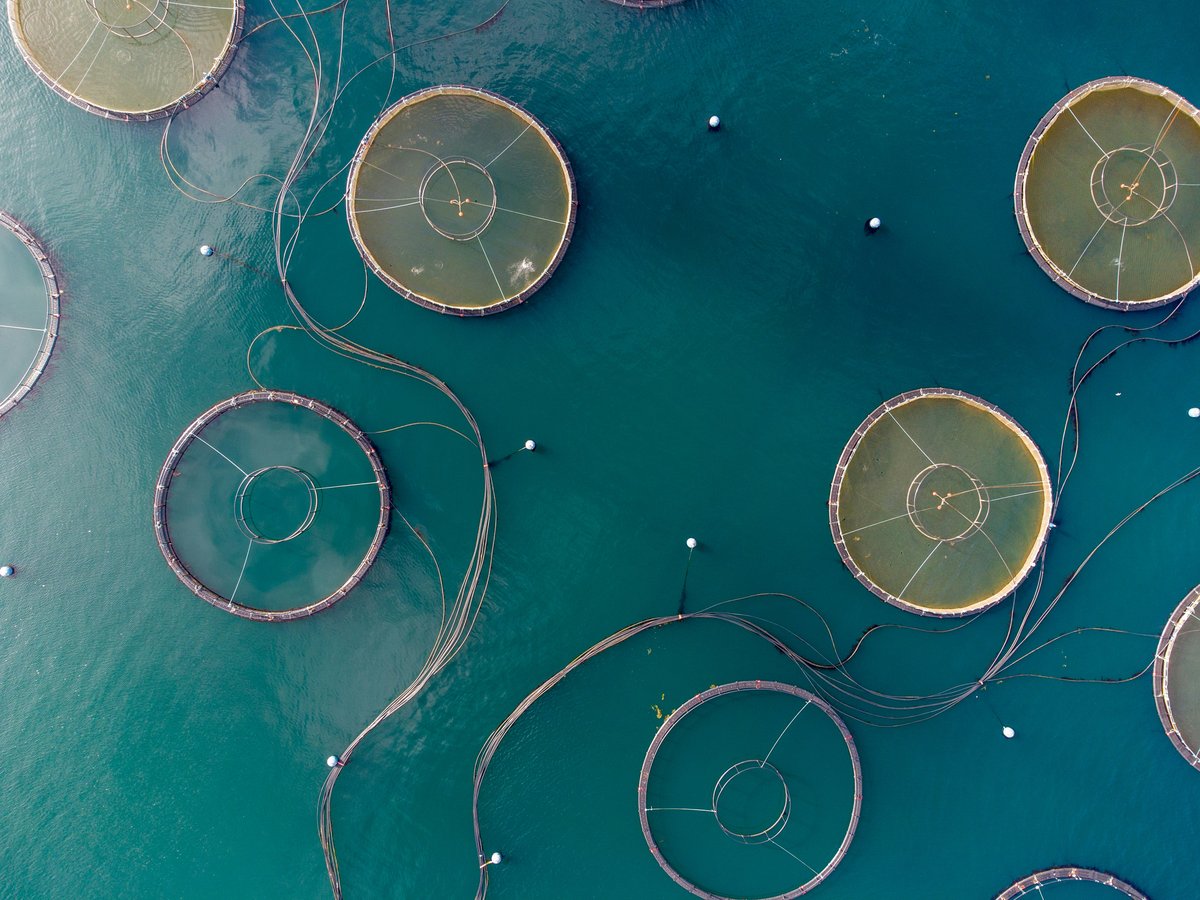The Hungarian presidency of the Council of the European Union, which will run between 1 July and 31 December 2024, has announced in its programme that it will pay particular attention to the development of “sustainable and competitive aquaculture”, arguing that “it is the animal protein production sector with the smallest environmental footprint.”
Beyond a supposedly low carbon footprint, aquaculture is also presented as an alternative to mitigate declining wild fish catches. However, under the term “aquaculture” we find various production models – some of which are more environmentally benign when conducted at appropriate scale, such as the cultivation of mussels, clams, and oysters, and some of which come with significant damaging impacts.
Many European consumers who want to eat fish from sustainable sources believe farmed salmon, trout and seabass are sustainable choices. But the intensive farming of carnivorous fin fish is neither socially nor environmentally sustainable.
The environmental impacts of this industrial production model include an increase in harmful algal blooms, a negative impact on sea grass meadows due to the accumulation of organic matter around farms, mass fish die-offs, the use of the harmful substances such as carcinogenic formaldehyde or antibiotics, and water pollution, creating dead zones on the sea bed underneath the farms. Adding to this, carnivorous farmed fish such as salmon and seabass require high volumes of fishmeal and fish oil from wild-caught fish in their feed.
In Europe, industrial aquaculture of carnivorous fish at sea is damaging the environment and displacing traditional activities such as coastal small-scale fisheries.
On the island of Poros, Greece, for example, the plan is to increase the area dedicated to open net pen carnivorous fish farms by 28 times. Yet, underwater video depicts that marine ecosystem near the current small-scale pens is completely dead from the waste and pollution of the farms, and local professional fishermen attest to a loss of wild fish since the influx of fish farms.
Beyond Europe, the production of fishmeal and fish oil necessary to feed carnivorous farmed fish is depleting wild fish stocks. This is the case in West Africa where the overfishing of small pelagics such as sardines and mackerel for industrial fish farms in Europe is undermining food security and the livelihoods of small-scale fishers and women fish-processors. Fish is taken away from people in low-income countries to feed the farmed fish which will be consumed in wealthy nations.
The UN special rapporteur on the right to food acknowledged this in his report to the Human Rights Council in early 2024: “Many farmed fish are carnivorous species that require feed products harvested from wild fish stock, thereby creating another source of pressure on wild fish stocks and disrupting ecosystems.
Moreover, global feed companies are exacerbating food insecurity in some communities. For example, over half a million tons of pelagic fish that could feed over 33 million people in the region are instead extracted from the ocean along the coast of West Africa and converted to fishmeal and fish oil, primarily in order to feed farmed fish and livestock, mostly in Asia and Europe.”
The current EU strategy for aquaculture does not respond to the social and environmental challenges posed by this sector and fails to clearly define what “sustainable” aquaculture is. In fact, in a special report on aquaculture, the European Court of Auditors (ECA) found that the European Union has been pouring funds into the development of aquaculture with little proof that this has contributed to the sector’s “environmental and social sustainability or its competitiveness.” The ECA report further highlights that “there are currently no indicators available to monitor the environmental sustainability of EU aquaculture.”
Under the agriculture and fisheries agenda, Hungary has reaffirmed its wish to support farmers, and fish farmers, through a “farmer-friendly European food system.” Rather they should support low impact small-scale fishers as primary food producers.
Under the Hungarian presidency, the EU should discontinue support for industrial aquaculture of carnivorous species and instead promote more sustainable small-scale aquaculture options that can co-exist instead of negatively affecting small-scale fisheries in Europe and beyond. If Europe wants to be a model in sustainable ocean governance, it must place small-scale, low-impact fisheries and aquaculture at the heart of its food policy.
This is an open letter signed by the following organisations from Africa and Europe: African Confederation of Artisanal Fisheries Organisations (CAOPA), Coalition for Fair Fisheries Arrangements (CFFA), Feedback Europe, Low Impact Fishers of Europe (LIFE), Compassion in World Farming and the Rauch Foundation.

